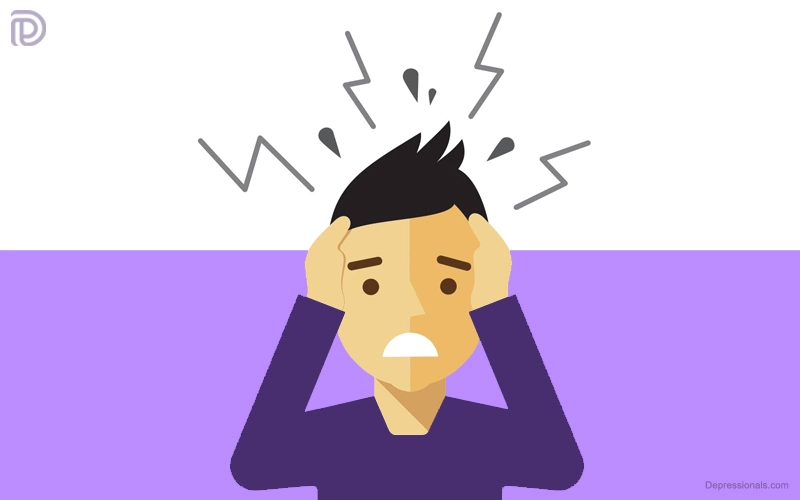What is intermittent explosive disorder?
A disorder that causes an abrupt outburst of anger, aggression, or violence is intermittent explosive disorder (IED). In these situations, we tend to react in an irrational way or out of proportion.
A person with IED has frequent, recurring outbursts while most people lose their temper occasionally. IEDs may cause tantrums, damage property, or physical attacks on others.
To learn more about IED signs, read on.
Read: Kleptomania
How common is intermittent explosive disorder?
The prevalence of the intermittent explosive disorder is estimated to range from 1 to 7 percent among individuals.
Who is affected by intermittent explosive disorder?
The intermittent explosive disorder normally begins in childhood, but can also affect young children. The majority of cases occur in people younger than 40.
What are the signs of intermittent explosive disorder?
The symptoms of intermittent explosive disorder appear to be adult temper tantrums. An intermittent explosive disorder is characterized by hurling objects, fighting without a reason, and treating domestic abusers badly. It usually takes less than 30 minutes for the outburst to occur. People may experience relief after an outburst, followed by embarrassment and regret.
Also, check: Side Effects of Overthinking
What are the symptoms of intermittent explosive disorder?
IED symptoms include impulsive, aggressive episodes. Here are some behaviors that may indicate an IED:
- Shouting and yelling
- Intensive arguments
- Rampages and temper tantrums
- Threats
- Road rage
- Breaking plates or punching walls
- Property damage
- Slapping or shoving is physical violence
- Brawls or fights
- Violent domestic abuse
- Assault
Spells or attacks of this nature often come without warning. Symptoms generally last 30 minutes or less. These symptoms may be accompanied by physical symptoms, such as:
- An increase in energy (adrenaline rush)
- Anxiety or headache
- Papillary contractions
- Having trouble breathing
- Muscle tension
- Tingling
- Tremors
People often report feeling irritated, raged, or out of control before or during an episode. People with IED might feel detached or have racing thoughts. A person might feel relieved or tired immediately afterward. Many IED sufferers report feelings of guilt and remorse following an episode.
Some IED patients experience these episodes frequently. These impulses may be triggered by nonaggressive behavior after a few weeks or months. During times of physical violence, verbal outbursts can occur.
You should know about Insomnia disorder.
How is intermittent explosive disorder diagnosed?
A diagnosis is made by including the individual’s medical and mental history, physical examination and performing a psychological evaluation. The intermittent explosive disorder is diagnosed when an individual fails to control aggressive impulses as defined by one of these criteria:
- Physical aggression against property, animals, or individuals accompanied by verbal aggression (temper tantrums, verbal arguments or fights), occurring twice weekly, on average, for 3 months. Animals or people are not physically harmed by the aggression. Or
- During 12 months, three incidents involving bodily harm to either animal or other individuals or destruction of property.
When the outbursts occur, the aggression is too extreme for the situation. Outbursts are impulsive and/or anger-driven; they are not planned. A mental disorder or medical condition or drug addiction is not better explained by the outbursts.
Every edition of the DSM contains a psychiatric disorder that is characterized by aggressive and impulsive behavior. The third edition was the first to use the name IED. It was believed to be a rare book before the third edition. The prevalence of IED is believed to have increased with updated diagnostic criteria and advances in research.
The DSM-5 IED criteria were met by 6.3% of 1,300 people seeking care for mental health issues at some point in their life, according to a study done in 2005. In addition, 3.1 percent were diagnosed with an illness currently.
The DSM-5 criteria for IED were met by 7.3 percent of those in a study of 9,282 people conducted in 2006. Three percent of those met the criteria within the last year.
Check: Types of Overthinking
What causes IED?

There is little information about what causes IEDs. Environmental and genetic factors are likely to be responsible for the condition. Parents can pass on genes to their children through genetic factors. Childhood exposure to environmental factors includes behaviors learned at an early age.
It’s also possible that brain chemistry is involved. Researchers have found that repeated aggressive and impulsive behavior is linked to low serotonin levels in the brain.
There is a possibility that you will develop IED if you:
- Genes (occur in families)
- In childhood, being verbally and physically abused
- Serotonin levels in the brain can cause the disorder (brain chemistry)
- Childhood traumas
There is a history of mental disorders, such as antisocial personality disorder, attention deficit hyperactivity disorder (ADHD), and borderline personality disorder.
Eighty-two percent of people with the intermittent explosive disorder also suffer from depression, anxiety or addiction.
Must Recommend: Multiple Strategies to Control Overthinking
How is intermittent explosive disorder treated?
IED is treated in several ways. The most common treatment is a combination of several treatments.
Therapy
A person with IED may benefit from seeing a counselor, psychologist, or therapist alone or in a group setting.
Psychotherapy involving cognitive-behavioral therapy (CBT) aims to identify selfish impulses that hurt oneself and to strengthen coping skills, relaxation techniques, and relapse prevention techniques to counteract them.
According to a 2008 study, 12 weeks of CBT for individuals or groups reduced the symptoms of IED including aggression, anger control, and hostility. After three months, the results were the same as those obtained during treatment.
Medication
Some medications can help reduce aggression or impulsive behavior, but none are specifically prescribed for IED. A few of these are:
- Antidepressants, most notably selective serotonin reuptake inhibitors (SSRIs)
- Mood stabilizers such as lithium, carbamazepine, and valproic acid
- Drugs that treat schizophrenia
- Medications that reduce anxiety
IED medication has a limited research base. Several studies found that fluoxetine, marketed as Prozac, decreased impulsive-aggressive behaviors among people with IED in 2009.
Once SSRIs are stopped, the symptoms tend to return, and symptoms may need to be repeated for at least three months after treatment begins. Further, some people don’t respond well to medication.
Read: Pyromania Disorder
Alternative treatments available
IED treatment alternatives and lifestyle changes have not been explored in any studies. Yet, some interventions are unlikely to cause harm. The following are some of these:
- Maintaining a healthy diet
- Sleeping well
- Being physically active
- Don’t drink, don’t smoke, and don’t use drugs
- Stress reduction and management
- Listening to music is a relaxing activity
- Meditating or practicing mindfulness
- Acupressure, acupuncture, and massage are examples of alternative therapies
Recommended: How to help someone with Depression
Living with intermittent explosive disorder
The effects of IED can affect your everyday activities and close relationships. Relationships can become unstable and complicated if there are frequent arguments and more aggressive behavior. Family members can suffer significant harm during IED episodes.
Being aggressive on the road, at work, or at school might have consequences as well. Possible complications include losing one’s job, losing one’s education, having an accident, as well as financial and legal repercussions.
IED patients are at a higher risk of developing other mental and physical health problems. Among them are:
- Depression
- Anxiety
- ADHD
- Alcohol or substance misuse
- Other risky or impulsive behaviors, such as problem gambling
- Eating disorders
- Chronic headaches
- High blood pressure
- Diabetes
- Heart disease
- Stroke
- Chronic pain
- Ulcers
- Self-harm and suicide
Read: Oppositional Defiant Disorder
Can intermittent explosive disorder be prevented?
Several coping techniques will be taught to people with intermittent explosive disorder in therapy. Preventing episodes is possible with these. The following are among them:
- Relaxation techniques
- Restructuring your thinking (cognitive restructuring)
- Communication skills
- Avoiding stressful events when possible and changing your environment
- Don’t drink or use recreational drugs
Consult a health professional
Treatment for IED is rarely sought by people with the condition. IED episodes are almost impossible to prevent without professional assistance.
If you believe you suffer from IED, you should consult your doctor or another mental health practitioner right away. Call 911 immediately if you feel you could harm yourself or someone else.
You can ask your loved one to seek help if you suspect they have an IED. The possibility of them doing so is not guaranteed. The IED should not be used as a pretext to harass or threaten you.
Ensure your children and yourself are protected. Visit their website to find out how to prepare for an emergency and how to get help by calling 800-799-SAFE (800-799-7233).






I was curious if you ever considered changing the layout of your site.
It’s very well written; I love what you’ve got to say.
But maybe you could do a little more inn the way of
content so people could connect with it better. You’ve got an awful lot of text for only having one or two pictures.
Maybe you could space it out better?
Keep on working, great job!
Some truly good blog posts on this web site, thankyou for contribution.
I’m not sure why but this website is loading extremely slow for me. Is anyone else having this issue or is it a issue on my end? I’ll check back later on and see if the problem still exists.